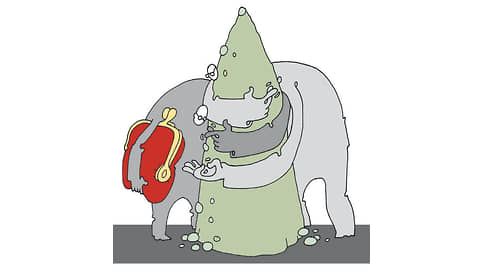Fertilizers will feed the budget – Newspaper Kommersant No. 169 (7370) of 09/14/2022
[ad_1]

As Kommersant found out, the government is considering imposing export duties on all types of fertilizers, which chemical companies have so far managed to avoid, despite the requirements of the Ministry of Agriculture. This time, the Ministry of Finance wants to receive more than 100 billion rubles from the industry. in year. This threatens companies with a loss of up to 12% of export earnings, which will complicate the implementation of investment projects that are already in doubt amid sanctions and problems with logistics.
The Ministry of Finance proposes to set export duties on fertilizers, sources told Kommersant. The decision on this has practically been made, now a specific rate is being discussed, the calculations of which are supervised by Deputy Finance Minister Alexei Sazanov, Kommersant sources close to the government say. According to them, this week the issue was discussed at a meeting with First Deputy Prime Minister Andrei Belousov. His office does not comment on this information. The Ministry of Finance, the Ministry of Industry and Trade and the Ministry of Agriculture also did not provide comments.
The Ministry of Economy says that such an initiative of the Ministry of Finance has not been received there. “When substantive proposals appear, we will ensure their discussion within the framework of the relevant government subcommittee with the participation of all interested departments, including the Ministry of Industry and Trade and the Ministry of Agriculture,” they explained. The issue is not discussed with market participants, Kommersant sources say.
Kommersant’s interlocutors say that in general it is planned to collect about 105 billion rubles from the chemical industry. in year.
The decision to introduce an export duty will be formalized as a government decree valid for six months in order to avoid reconciling the issue within the EAEU (unilateral imposition of duties is possible for a maximum of six months). The calculations are based on the exchange rate of 60 rubles/$, which is significantly lower than the forecast level included in the budget (69 rubles/$). Kommersant’s sources note that the option of establishing a single rate for all types of fertilizers is being considered. According to some of them, it will be difficult to implement this, given the significant difference in supply prices not only between nitrogen, phosphorus and complex fertilizers, but also quotations in different countries.
Kommersant’s interlocutors emphasize that the Ministry of Finance in its assessments relies on the financial statements of companies under RAS, not taking into account the sharp increase in logistics costs, the freezing of funds from many companies, the negative impact of exchange rate differences, as well as the volumes stuck in the delivery of goods. In this situation, Kommersant’s sources assure, the largest industry players will have to curtail investment projects remaining in their plans. The chemical companies themselves do not officially comment on the initiative of the Ministry of Finance and its consequences.
According to Kommersant’s interlocutors, it was originally planned to introduce export duties on companies and goods in the metallurgical sector.
Similar measures were already introduced for ferrous and non-ferrous metals from August 1 to December 31, 2021 and consisted of a base duty rate of 15% and a specific component in dollars per ton, the amount of which differed depending on the type of metal (for non-ferrous metals) or the degree processing of products (for ferrous metals), taking into account the dynamics of world prices for the first five months of 2021. The only thing that saved the metallurgists from returning the duty was the fact that this year their profitability went into the red due to sanctions, Kommersant’s sources say.
The introduction of export duties on fertilizers has been repeatedly proposed, including at the initiative of the Ministry of Agriculture. But each time the discussions ended with a discount for domestic fertilizer consumers and a price freeze. At the same time, in 2021 and 2022, the authorities increased the MET for apatite-nepheline, apatite and phosphorite ores, as well as potassium. Already this year, the government began to practice restrictions on the export of nitrogen and nitrogen-containing fertilizers, and export quotas will almost certainly be extended to 2023.
Nina Adamova from the CEP of Gazprombank estimates the new fiscal burden at 8-12% of the expected export earnings of the chemical sector this year.
But the exact figure will depend on the results of the second half of the year, the expert notes. According to Boris Sinitsyn, the head of the Renaissance Capital analytical group for metallurgy and mining, in 2021 the amount of seizures would amount to 11% of the export revenue of fertilizer producers, in 2022 it could be 8–9%, as prices rose to a record high. In the event of “normalization” of prices for fertilizers, the expert believes, the duty may lead to a decrease in the net profit of producers by 20%.
[ad_2]
Source link





